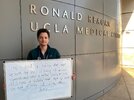- Joined
- Jan 15, 2016
- Messages
- 8
- Reaction score
- 5
Hi all. I'm having an existential crisis right now, and my future choice of specialty has been on my mind.
For context, I'm currently an MD-PhD student. I do a lot of clinical/scientific work on diabetes. So for the longest time, I truly wanted to go into endocrinology because it was the natural decision if I wanted to study/work with diabetes. Lately, a lot of family developments have made me reconsider if endocrinology is financially feasible, especially as a physician-scientist. I don't want to sound like "woe is me," because the reality is that being an endocrinologist is very financially attractive compared to most jobs out there.
However, the longer I'm in medical school, the more I've realized that it'll very much be a labor of love. Three reasons I can think of immediately: 1) physician-scientists get paid less, 2) cost-of-living where I hope to train is going to burn through any salary I earn, and 3) as I mentioned before, family matters have made me reconsider everything. I honestly don't know how much longer I can keep up with this much training for what is near minimum wage salary—only to graduate with physician-scientist salary. I've read many previous threads with this same exact discussion. Often, posters reason that, "But 150k is plenty fine to be middle class, even in high cost-of-living areas." To be quite frank, that's not enough for my family—because now, I have multiple to take care of (sorry, I don't think I should go into any further detail).
I've considered other options which I find very exciting/interesting, though not the job I've always had in mind. For example, I hear cardiologists these days see even more diabetes patients than endocrinologists. As a scientist, I may even find a niche studying the intersection between diabetes/cardiology. Heme/onc is also very attractive given how friendly the field is to physician-scientist (at least, relatively speaking). I think I might actually prefer the clinical work oncologists do. Both of those two options are much more fairly compensated in my opinion.
Do I still have any chance to do the clinical/scientific work I am passionate about? When I'm out interviewing for residencies, is it going to be a red flag if I'm applying with such a strong diabetes focus? The latter has been a worry of mine.
Thanks all for helping.
For context, I'm currently an MD-PhD student. I do a lot of clinical/scientific work on diabetes. So for the longest time, I truly wanted to go into endocrinology because it was the natural decision if I wanted to study/work with diabetes. Lately, a lot of family developments have made me reconsider if endocrinology is financially feasible, especially as a physician-scientist. I don't want to sound like "woe is me," because the reality is that being an endocrinologist is very financially attractive compared to most jobs out there.
However, the longer I'm in medical school, the more I've realized that it'll very much be a labor of love. Three reasons I can think of immediately: 1) physician-scientists get paid less, 2) cost-of-living where I hope to train is going to burn through any salary I earn, and 3) as I mentioned before, family matters have made me reconsider everything. I honestly don't know how much longer I can keep up with this much training for what is near minimum wage salary—only to graduate with physician-scientist salary. I've read many previous threads with this same exact discussion. Often, posters reason that, "But 150k is plenty fine to be middle class, even in high cost-of-living areas." To be quite frank, that's not enough for my family—because now, I have multiple to take care of (sorry, I don't think I should go into any further detail).
I've considered other options which I find very exciting/interesting, though not the job I've always had in mind. For example, I hear cardiologists these days see even more diabetes patients than endocrinologists. As a scientist, I may even find a niche studying the intersection between diabetes/cardiology. Heme/onc is also very attractive given how friendly the field is to physician-scientist (at least, relatively speaking). I think I might actually prefer the clinical work oncologists do. Both of those two options are much more fairly compensated in my opinion.
Do I still have any chance to do the clinical/scientific work I am passionate about? When I'm out interviewing for residencies, is it going to be a red flag if I'm applying with such a strong diabetes focus? The latter has been a worry of mine.
Thanks all for helping.




